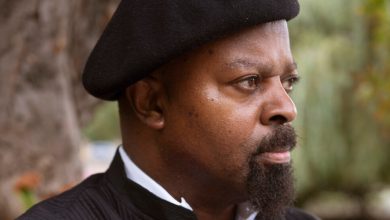Bill Russell, Who Led the Celtics to 11 Championships, Dies at 88

Bill Russell, whose defensive athleticism at center changed the face of pro basketball and propelled the Boston Celtics to 11 N.B.A. championships, the final two when he became the first Black head coach in a major American sports league, died on Sunday . He was 88.
His death was announced by his family, who did not say where he died.
When Russell was elected to the Basketball Hall of Fame in 1975, Red Auerbach, who orchestrated his arrival as a Celtic and coached him on nine championship teams, called him “the single most devastating force in the history of the game.”
He was not alone in that view: In a 1980 poll of basketball writers (long before Michael Jordan and LeBron James entered the scene), Russell was voted nothing less than the greatest player in N.B.A. history.
Russell’s quickness and his uncanny ability to block shots transformed the center position, once a spot for slow and hulking types. His awesome rebounding triggered a Celtic fast break that overwhelmed the rest of the N.B.A.
Former Senator Bill Bradley, who faced Russell with the Knicks in the 1960s, viewed him as “the smartest player ever to play the game and the epitome of a team leader.”
“At his core, Russell knew that he was different from other players — that he was an innovator and that his very identity depended on dominating the game,” Bradley wrote in reviewing Russell’s remembrances of Auerbach in “Red and Me: My Coach, My Lifelong Friend” (2009) for The New York Times.
In the decades that followed Russell’s retirement in 1969, when flashy moves delighted fans and team play was often an afterthought, his stature was burnished even more, remembered for his ability to enhance the talents of his teammates even as he dominated the action, and to do it without bravado: He disdained dunking or gesturing to celebrate his feats.
In those later years, his signature goatee now turned white, Russell reappeared on the court at springtime, presenting the most valuable player of the N.B.A. championship series with the trophy named for him in 2009.
Russell was remembered as well for his visibility on civil rights issues.
He took part in the 1963 March on Washington for Jobs and Freedom and was seated in the front row of the crowd to hear the Rev. Dr. Martin Luther King Jr. deliver his “I Have a Dream” speech. He went to Mississippi after the civil rights activist Medgar Evers was murdered and worked with Evers’s brother, Charles, to open an integrated basketball camp in Jackson. He was among a group of prominent Black athletes who supported Muhammad Ali when Ali refused induction into the armed forces during the Vietnam War.
President Barack Obama awarded Russell the Presidential Medal of Freedom, the nation’s highest civilian award, at the White House in 2011, honoring him as “someone who stood up for the rights and dignity of all men.”
In September 2017, following President Donald J. Trump’s calling for N.F.L. owners to fire players who were taking a knee during the national anthem to protest racial injustice, Russell posted a photo on Twitter in which he posed taking a knee while holding the medal.
“What I wanted was to let those guys know I support them,” he told ESPN.
A complete obituary will appear shortly.





